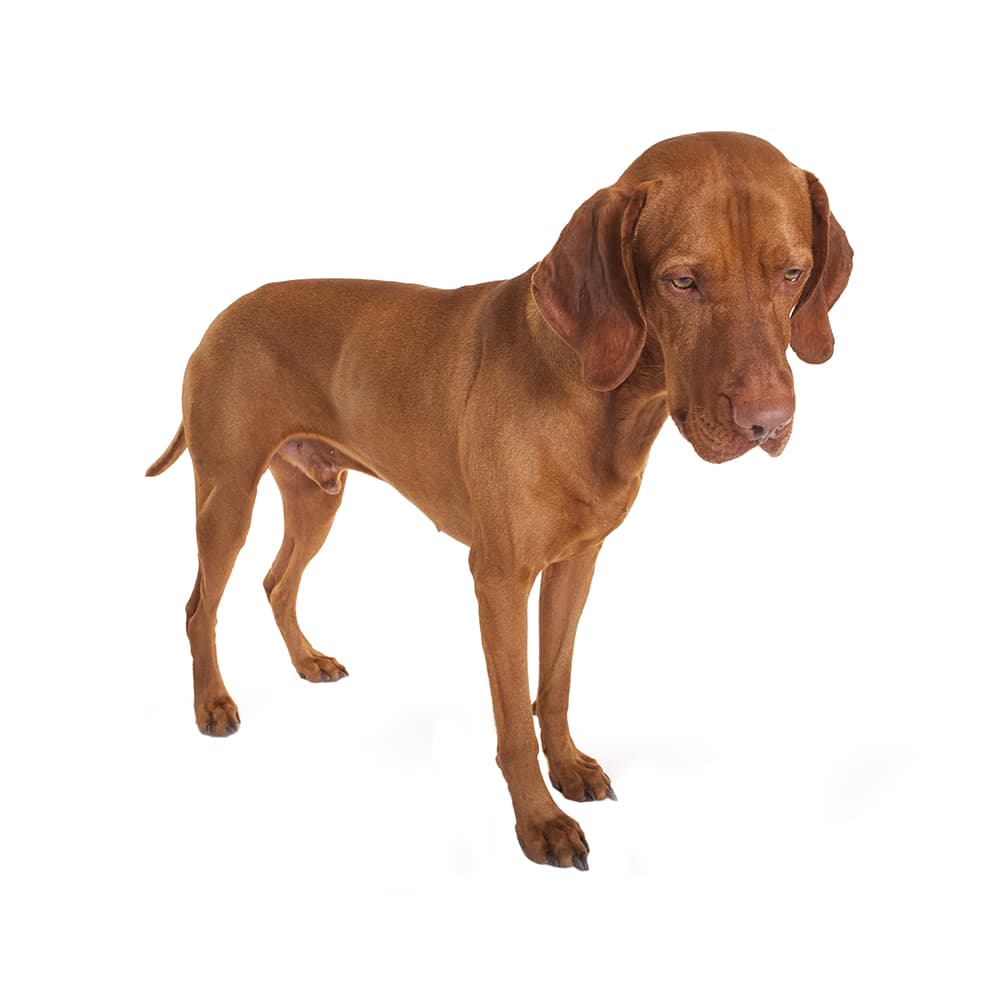Discover your dog's connection to this breed and 200+ others


Discover your dog's connection to this breed and 200+ others



The Hungarian Wire-Haired Vizsla, also known as the Hungarian Wirehaired Pointer, is a breed that originated in Hungary. It is a versatile hunting dog that was developed in the early 20th century by crossing the smooth-coated Hungarian Vizsla with various other breeds, including the German Wirehaired Pointer and the Pudelpointer. The goal was to create a dog that could excel in hunting both on land and in water while possessing a dense, wiry coat to provide protection in harsh weather conditions.
Hungarian Wirehaired Vizslas are generally healthy, but may suffer from hyperuricosuria, exercise-induced collapse, elbow and hip dysplasia, glaucoma, cataracts, subaortic stenosis, and progressive retinal atrophy. Genetic testing is recommended, including for the following additional conditions: degenerative myelopathy, and progressive rod-cone degeneration.
The Hungarian Wire-Haired Vizsla is known for its friendly, loyal, and affectionate nature. They are highly intelligent, trainable, and have a strong desire to please their owners. As a hunting breed, they have a lot of energy and require regular exercise and mental stimulation. They are excellent family dogs, get along well with children and other pets, and can be good watchdogs due to their alert and protective instincts. They can be reserved around strangers.
The Hungarian Wire-Haired Vizsla is often referred to as the "Velcro Vizsla" because of its tendency to stick close to its owners, always wanting to be involved in family activities.
This breed is an excellent swimmer and has webbed feet, which makes it well-suited for retrieving game from water.
Hungarian Wire-Haired Vizslas have a distinctive appearance with their shaggy eyebrows and beard, giving them a charming and unique look.
The Wirehaired Vizsla is the 180th breed of the American Kennel Club (AKC).
https://www.akc.org/dog-breeds/wirehaired-vizsla/
https://www.fci.be/en/nomenclature/HUNGARIAN-WIRE-HAIRED-POINTER-239.html
https://www.ukcdogs.com/hungarian-wire-haired-vizsla
Recommended by top vets with decades of experience
21 breeds
64 genetic health markers
50 genetic trait markers
